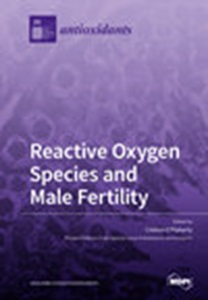植物化学物质在治疗衰老和癌症中的作用:关注 FOXO3 激活机制
IF 6
2区 医学
Q1 BIOCHEMISTRY & MOLECULAR BIOLOGY
引用次数: 0
摘要
许多研究报告指出,经常食用水果和蔬菜与降低癌症和与年龄有关的慢性疾病的风险有关。最近的研究表明,通过天然来源的植物化学物质减少活性氧和炎症,可以延长一系列模式生物的寿命。通过体外和体内研究,从水果和蔬菜中提取的植物化学物质通过干扰对肿瘤发展至关重要的细胞过程,对各种癌症具有预防和抑制作用。目前的挑战在于如何根据个人的需求量身定制含有特定植物化学物质的营养补充剂。要实现这一目标,需要更深入地了解植物化学物质影响人体健康的分子机制。在这篇综述中,我们研究了最近(从 2010 年到 2024 年)报道的通过激活 FOXO3 转录因子具有抗衰老和抗癌作用的植物提取物和植物化学物质。此外,我们还概述了这些分子在特定模型系统中发挥抗衰老和抗癌作用的细胞和分子机制。最后,我们讨论了当前研究方法的局限性,并概述了该领域未来的潜在发展方向。本文章由计算机程序翻译,如有差异,请以英文原文为准。
Role of Phytochemicals in Treatment of Aging and Cancer: Focus on Mechanism of FOXO3 Activation
There have been many studies reporting that the regular consumption of fruits and vegetables is associated with reduced risks of cancer and age-related chronic diseases. Recent studies have demonstrated that reducing reactive oxygen species and inflammation by phytochemicals derived from natural sources can extend lifespans in a range of model organisms. Phytochemicals derived from fruits and vegetables have been known to display both preventative and suppressive activities against various types of cancer via in vitro and in vivo research by interfering with cellular processes critical for tumor development. The current challenge lies in creating tailored supplements containing specific phytochemicals for individual needs. Achieving this goal requires a deeper understanding of the molecular mechanisms through which phytochemicals affect human health. In this review, we examine recently (from 2010 to 2024) reported plant extracts and phytochemicals with established anti-aging and anti-cancer effects via the activation of FOXO3 transcriptional factor. Additionally, we provide an overview of the cellular and molecular mechanisms by which these molecules exert their anti-aging and anti-cancer effects in specific model systems. Lastly, we discuss the limitations of the current research approach and outline for potential future directions in this field.
求助全文
通过发布文献求助,成功后即可免费获取论文全文。
去求助
来源期刊

Antioxidants
Biochemistry, Genetics and Molecular Biology-Physiology
CiteScore
10.60
自引率
11.40%
发文量
2123
审稿时长
16.3 days
期刊介绍:
Antioxidants (ISSN 2076-3921), provides an advanced forum for studies related to the science and technology of antioxidants. It publishes research papers, reviews and communications. Our aim is to encourage scientists to publish their experimental and theoretical results in as much detail as possible. There is no restriction on the length of the papers. The full experimental details must be provided so that the results can be reproduced. Electronic files and software regarding the full details of the calculation or experimental procedure, if unable to be published in a normal way, can be deposited as supplementary electronic material.
 求助内容:
求助内容: 应助结果提醒方式:
应助结果提醒方式:


